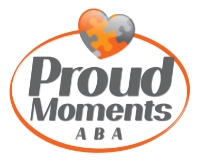About Job
- Director—Care Coordination
- Extensive SW theory base.
- Uses multiple therapeutic modalities.
- Demonstrates professional judgment.
- Outstanding communication skills.
- Capable of multitasking.
- Attentive to detail.
- Highly organized.
- Flexible.
- Assesses patient's/family's biopsychosocial functioning, emotional support network and socioeconomic status and needs. Develops individualized and attainable goals in conjunction with patients and families.
- Therapeutic Intervention & Counseling - uses modalities which optimize treatment goals and interventions. Provides counseling for adaptation to medical circumstance and secondary psychosocial effects.
- Discharge Planning - integrates medical and psychosocial plans of care. Knowledgeable regarding current community resources. Demonstrates current knowledge of guidelines, procedures and laws pertinent to provisions of S. W. services.
- Documentation - complies with hospital and departmental Quality Improvement standards and statistical requirements.
- Advocacy - maintains confidentiality, adheres to HIPAA Regulations and protects patient/family rights.
- Collaboration - communicates effectively with medical staff, health care team, social work colleagues and patient/family.
- Participates in providing training and education for East Tennessee Children's Hospital staff.
- Demonstrates accountability and responsible use of hospital’s and department’s time and resources.
- Willingly accepts any other assignment that may be requested.
- Note: Reasonable accommodations may be made for individuals with disabilities to perform the essential functions of this position.
- Medium lifting, pushing and pulling is required for 20-50 lbs occasionally, 10-20 pounds frequently and 10 lbs constantly to move objects. Sudden emergency situations have the potential for exposure for lifting or moving of up to 100 lbs. Frequent bending, walking, sitting, squatting, reaching, and standing are required. Keyboard/computer use and/or repetitive motions may be required.
Professional Field
 Counseling
Counseling Social Work
Social Work Other Behavioral, Mental, or Healthcare Field
Other Behavioral, Mental, or Healthcare FieldPatient Focus
Diagnoses
Avoidant Personality Disorder
Issues
Stress
Substance Abuse
Age Groups
Children (5-10)
Therapeutic Approach
Methodologies
ECT
Modalities
Families
Individuals
Practice Specifics
Populations
Individuals with Addiction Issues
Victims of Crime/Abuse (VOC/VOA)
Racial Justice Allied
School
Settings
In-patient Non-Psychiatric
In-patient Psychiatric
Intense Out-patient (IOP)
Milieu
Research Facilities/Labs/Clinical Trials
Home Health/In-home
Sign up for job alertsGet daily alerts for jobs relevant to you, sent to your inbox











